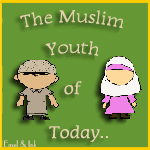Excerpts from IslamWay Sister's Halaqa.
Definition of Salah
Linguistic meaning: du’aa (invocation)
Legal meaning: worship of Allah comprising sayings and actions defined and particularized in specific manners starting with the declaration of Takbeer (saying “Allahu Akbar”) and ending with Tasleem (saying “assalaamu ‘alaykum wa rahmat-Allaah”).
All of Salah is du’aa. It involves the two types of du’aa:
1. Du’aa al-mas’alah (du’aa of asking): the spoken part of prayer.
2. Du’aa al-ibaadah (du’aa of worship): the sitting, standing, bowing, and prostration in prayer. These actions are ways of seeking Allah by means of non-spoken expression.
Ruling on Salah
1. Given that Salah is the second pillar after the testimony of Tawheed, the foundation of Islam, and was ordained to the Prophet (S.A.W) at the most high place a man has ever reached during the Night of Ascension, there is no doubt that Salah is obligatory in Islam.
2. There are many evidences in the Qur’aan and Sunnah that verify the obligation of Salah, one of which is the saying of Allah (S.W.T) which means, “Verily, As-Salât (the prayer) is enjoined on the believers at fixed hours.” (An-Nisaa 4:103)
3. When the Prophet (S.A.W) sent Muadh (may Allah be pleased with him) to Yemen, he told him to first call the people to Tawheed and then he (S.A.W) said, “If they accept that, then tell them that Allah has enjoined on them five prayers each day and night.” (Bukhari and Muslim)
4. The Salah is ordained on every Muslim, adult, sane, male or female.
5. Salah was also enjoined on the previous nations. Allah (S.W.T) says in the Qur’aan about Prophet Ismail (A.S) which means, “And he used to enjoin on his family and his people As-Salât (the prayers) and the Zakât, and his Lord was pleased with him.” (Surat Maryam 19:55) Allah (S.W.T) also says in the Qur’aan which means, “O Mary!” Submit yourself with obedience to your Lord (Allâh, by worshipping none but Him Alone) and prostrate yourself, and Irkâ'i (bow down) along with Ar-Râki'ûn (those who bow down)." (Surat Aal Imran 3:43)
6. The scholars unanimously agreed that whoever denies the obligation of the five daily prayers or even one of them is a disbeliever (kaafir), and should be executed under Islamic Law if he/she does not repent.
7. According to some scholars, one who does not pray out of laziness is also considered a Kaafir. Among the evidences used by those who hold this view is the saying of the Prophet (S.A.W): “Between a man and shirk and kufr there stands his neglect of the prayer. (Muslim)
The Importance of Salah
1. Salah is the foundation of the deen, which cannot be established without it. The Prophet (S.A.W) said: “The head of the matter is Islam, its pillar is the prayer, and its highest pinnacle is Jihad in the way of Allah.” (Muslim)
2. Salah is the first thing a person will be asked about on the Day of Resurrection. The Prophet (S.A.W) said: “The first deed for which a person will be brought to account on the Day of Resurrection will be his prayer. If it is good then he will have prospered and succeeded, but if it is bad then he will be doomed and have lost. If anything is lacking from his obligatory prayers, the Lord will say, ‘Look and see whether My slave did any voluntary prayers, and make up the shortfall in his obligatory prayers from that.’ Then all his deeds will be dealt with likewise.” (Narrated by al-Nasaa’I and al-Tirmidhi. Classed as saheeh by al-Albaani)
3. Salah is the last thing to be lost from the deen. The Prophet (S.A.W) said: “If Islam were stripped away, piece by piece, people would hold tight to the next one. The first thing taken would be ruling and governance, and the last thing would be prayer.” (Ibn Hibban)
4. Among the last words which the Prophet (S.A.W) said before he bade farewell to this world are, “The prayer, the prayer! And fear Allaah with regard to those whom your right hands possess.” He (S.A.W) kept repeating it.
5. Allah (S.W.T) praised those who establish the prayer and those who command those under their responsibility to establish the prayer. Allah (S.W.T) says which means, “And he used to enjoin on his family and his people As-Salât (the prayers) and the Zakât, and his Lord was pleased with him.” (Surat Maryam 19:55)
6. Allah (S.W.T) considered those who abandon the prayer and those who are lazy about it blameworthy and warned them. Allah (S.W.T) says which means, “Then, there has succeeded them a posterity who have given up As-Salât (the prayers) [i.e. made their Salât (prayers) to be lost, either by not offering them or by not offering them perfectly or by not offering them in their proper fixed times] and have followed lusts. So they will be thrown in Hell.” (Surat Maryam 19:59) He (S.A.W) also says which means, “Verily, the hypocrites seek to deceive Allâh, but it is He Who deceives them. And when they stand up for As-Salât (the prayer), they stand with laziness and to be seen of men, and they do not remember Allâh but little.” (Surat An-Nisaa 4:142)
7. Salah is the greatest pillar in Islam and the greatest support and foundation after the testimony of Tawheed. The Prophet (S.A.W) said: “Islam is based on (the following) five (principles): 1. To testify that none has the right to be worshipped but Allah and Muhammad is Allah's Apostle. 2. To offer the (compulsory congregational) prayers dutifully and perfectly. 3. To pay Zakat (i.e. obligatory charity). 4. To perform Hajj. (i.e. Pilgrimage to Mecca) 5. To observe fast during the month of Ramadan.” (Bukhari)
8. Allah (S.W.T) did not ordain Salah on earth through Angel Jibreel. Rather He (S.W.T) decreed it directly to the Prophet (S.A.W) on the night of ascension, above the seven heavens.
9. Allah (S.W.T) initially ordered the Prophet (S.A.W) and his ummah to perform fifty prayers during the day and night, however it was then lightened to five prayers during the day and night. Salah is five in action, but fifty on the scale. This shows the love of Allah for Salah. 10. When Allah (S.W.T) spoke about the success of the Believers in their actions, He spoke about Salah right away: “Successful indeed are the believers. Those who offer their Salât (prayers) with all solemnity and full submissiveness.” (Surat Al-Mumenoon 23:1-2)
11. Allah commanded the Messenger of Allah (S.A.W) and his followers that they should instruct their families to establish the Salah: “And enjoin As-Salât (the prayer) on your family, and be patient in offering them [i.e. the Salât (prayers)].” (Surat Ta-ha 20:132) The Prophet (S.A.W) said, “Tell your children to pray when they are seven years old and smack them if they do not pray when they are ten, and separate them in their beds.” (Saheeh Abi Dawood)
12. The significance of Salah is emphasized in the fact that one who forgets to perform it or sleeps and misses it is commanded to make it up.
The Merits of Salah
1. Salah refrains from evil. Allah (S.W.T) says which means, "Recite (O Muhammad S.A.W) what has been revealed to you of the Book (the Qur'ân), and perform As-Salât (Iqamât-as-Salât). Verily, As-Salât (the prayer) prevents from Al-Fahshâ' (i.e. great sins of every kind, unlawful sexual intercourse) and Al-Munkar (i.e. disbelief, polytheism, and every kind of evil wicked deed) and the remembering (praising) of (you by) Allâh (in front of the angels) is greater indeed [than your remembering (praising) of Allâh in prayers. And Allâh knows what you do.” (Al-Ankaboot 29:45)
2. Salah is the best of deeds after the testimony of faith. Narrated Abdullah bin Masud: I asked Allah's Apostle (S.A.W), "O Allah's Apostle! What is the best deed?" He replied, "To offer the prayers at their early stated fixed times.” (Bukhari)
3. Salah wipes away sins. The Prophet (S.A.W) said: “If a person had a stream outside his door and he bathed in it five times a day, do you think he would have any filth left on him?" The people said, "No filth would remain on him whatsoever." The Prophet (S.A.W) then said, "That is like the five daily prayers: Allah wipes away the sins by them." (Bukhari and Muslim)
4. Salah is a light for the Believer in this life and in the Hereafter. The Prophet (W.A.S) said: “Whoever guards and observes his prayer, they will be a light and a proof and a savior for him on the Day of Resurrection. Whoever does not guard and observe them, they will not be a light or a proof or a savior for him. On the Day of Resurrection, he will be with Qarun, Fir'aun, Haman and Ubayy ibn Khalf." (Related by Ahmad, at-Tabarani and Ibn Hibban. Its chain is excellent.) He (S.A.W) also said, “Prayer is light.” (Muslim) Moreover, it is related that the Prophet (S.A.W) said, “Give good tidings to those who walk to the mosques in darkness for having a perfect light on the Day of Judgment.” (Sunan Abu Dawood)
5. Through Salah Allah lifts a person to higher degrees. The Messenger of Allah (S.A.W) said, “Make frequent prostrations before Allah, for you will not make one prostration without raising you a degree because of it, and removing a sin from you, because of it.” (Muslim)
6. Salah is from the greatest reasons for one to enter Paradise and be in the company of the Messenger of Allah (S.A.W). Rabi'a b. Ka'b said: I was with Allah's Messenger (may peace be upon him) one night and I brought him water and what he required. He said to me: Ask (anything you like). I said: I ask your company in Paradise. He (the Holy Prophet) said: Or anything else besides it. I said: That is all (what I require). He said: Then help me to achieve this for you by devoting yourself often to prostration. (Muslim)
7. Walking to establish Salah lifts the person to a higher degree and wipes away sins. Narrated Abu Huraira: Allah's Apostle (S.A.W) said, "The prayer offered in congregation is twenty five times more superior (in reward) to the prayer offered alone in one's house or in a business center, because if one performs ablution and does it perfectly, and then proceeds to the mosque with the sole intention of praying, then for each step which he takes towards the mosque, Allah upgrades him a degree in reward and crosses out one sin till he enters the mosque.” (Bukhari)
8. The Angels pray for the person performing Salah as long as he is in his place waiting for Salah. The Prophet (S.A.W) also said, “The angels will keep on asking Allah's forgiveness and blessings for everyone of you so long as he keeps sitting at his praying place. The angels will say, 'O Allah, bless him! O Allah, be merciful to him!' as long as he does not do Hadath or a thing which gives trouble to the other.” (Bukhari)
9. Salah is a protection from the Hellfire. The Messenger of Allah (S.A.W) said: “He who observed prayer before the rising of the son and its setting, i.e. the dawn prayer and the afternoon prayer, would not cater the (Hell) fire.” (Muslim)
10. The one who performs Salah is under the care and protection of Allah. The Messenger of Allah (S.A.W) said: “Whoever prays Fajr is under the protection of Allah.” (Muslim)
11. Salah is a safeguard against Kufr and Shirk. The Messenger of Allah (S.A.W) said: “Between a man and shirk and kufr there stands his neglect of the prayer.” (Muslim)
12. Praying Fajr and ‘Isha in congregation is a shield against hypocrisy. The Prophet (S.A.W) said: “The heaviest salat for the hypocrite is that of Isha'a and Fajr and if they knew what was in them they would have attended them even if it meant crawling.” (Bukhari and Muslim)
13. Allah (S.W.T) forgives the sins of His slave between one Salah and the next. The Prophet (S.A.W) said: “Not a person is there who performed ablution, and did it well, then offered prayer, but his sins (which he committed) were not pardoned between the prayer that he offered and the next one.” (Muslim)
14. Salah expiates sins before it. Allah's Messenger (S.A.W) said: “When the time for a prescribed prayer comes, if any Muslim performs ablution well and offers his prayer, with humility and bowing, it will be an expiation for his past sins, so long as he has not committed a major sin; and this applies for all times.” ( Bukhari)
15. Waiting for Salah is ribaat in the way of Allah. The Messenger of Allah (S.A.W) said: “Shall I not guide you to that by which Allah wipes away the sins and raises the ranks? “ They said: Certainly O Messenger of Allah! He said “Completing the wudoo when it is a hardship, and many steps to the mosques and waiting for the [next] prayer after the prayer, that is 'ar-Ribaat' (defending the frontiers), that is 'ar-Ribaat' that is 'ar-Ribaat').” (Muslim) Ribaat means remaining alert and watchful on the frontiers against the attack of the enemies. Here it means keeping oneself adhering to the prescribed acts of worship.
16. Salah also has physical and health benefits. Research studies have found that the postures made during salah are “beneficial to the heart, spine, and the capacity of memory and attention.” (Source: http://www.islamonline.net/servlet/Satelli...News/NWELayout)
There are many other merits and virtues to Salah, we have only been able to outline a few. Alhamdulilah.
Subscribe to:
Post Comments (Atom)





No comments:
Post a Comment